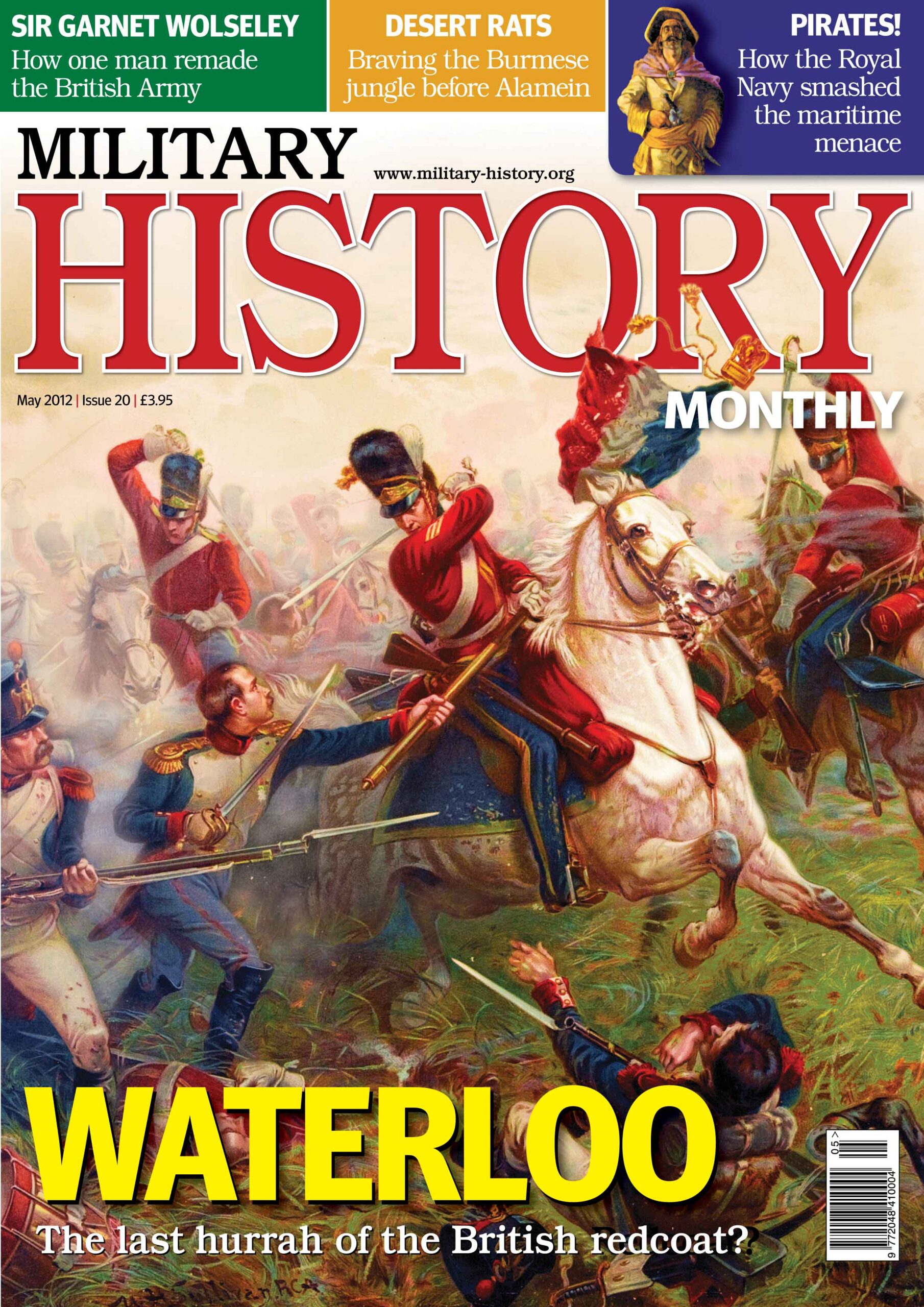The May 2012 issue of Military History Monthly, the British military history magazine, is on sale today.
In the latest issue we cover:
History of the British Army – Waterloo, 18 June 1815
It is perhaps the most famous victory in the British Army’s history. But Waterloo was not only ‘a near run thing’. It was also the end of a century of battlefield supremacy by British redcoats -the last hurrah of an obsolescent military system
Pirates! – the Royal Navy and the suppression of maritime raiding, 1620-1830
With Somali pirates in the news, naval historian Peter Earle takes a timely look at how the Royal Navy dealt with pirates in their 17th century heyday.
‘All Sir Garnett!’ – Lord Wolseley and the British Army in the First World War
Julian Brazier explores the central role of one of QueenVictoria’s greatest generals in preparing the Army for a modern industrialised war -and discovers it was the Americans who were the greatest inspiration.
The Desert Rats in Burma – fighting the Japanese in the jungle
Some of the famous Desert Rats spent part of the war fighting in Burma. WWII veteran and military historian Patrick Delaforce tells the story.
MUD -the waterlogged battlefields of the First World War
Matt Leonard explores the intimate physical relationship between soldiers and mud on the waterlogged battlefields of WWI.
Also in this issue: War Culture, Warrior, and Book Reviews.
From the editor
Neil Faulkner, Editor/n
We lead this issue with Waterloo, perhaps the most famous land battle in British history. It is especially noted for two things: Wellington’s faultless tactical handling of the battle; and the gritty resilience of disciplined British redcoats.
But the British Army was to pay a heavy price for Waterloo over the next century. The victory taught the wrong lesson -that the old way of war could still beat the new -such that outdated methods became hardwired into British military doctrine and practice.
Wellington himself was an arch-conservative, and he dominated Army thinking until his death in 1852. Yet he admitted that Waterloo had been ‘a near run thing’.
Indeed it had. Without the Prussians, there is little doubt that Wellington’s line of some 68,000 would have been smashed by Napoleon’s 72,000.
This would have been a victory against the odds. The numerical advantage was insignificant. The French were on the offensive all day. Napoleon and his senior marshals mismanaged the battle. Despite all this, no-one seriously doubts that Wellington’s line would have broken but for the mounting Prussian pressure on the French right from late afternoon onwards.
The simple fact is that the French army was better. Better because the French had pioneered a new way of war. They had created a ‘nation-at-arms’: a citizen army motivated by nationalism and idealism, an officer corps based on merit, and a military doctrine stressing movement, mass, and shock.
Waterloo was the last hurrah of an obsolescent system. But it had the effect of concealing this truth from Britain’s political and military elite -until it was unmistakably exposed on the killing-fields of the First World War.

